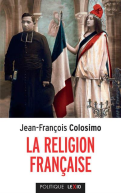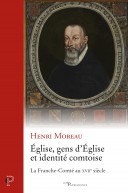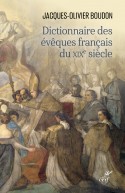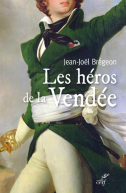
Mgr Eudoxe Irénée Mignot (1842-1918)
Collection Histoire religieuse de la France - N° 25
752 pages - nov. 2004
16,50€
Mgr Eudoxe Irénée Mignot (1842-1918), évêque de Fréjus (1890) puis archevêque d’Albi (1899) a été, du fait de son ouverture d’esprit et de sa compétence dans le domaine biblique, l’un des évêques français de son temps le plus impliqué dans la crise moderniste. Son amitié indéfectible pour l’abbé Alfred Loisy et le soutien sans faille qu’il a apporté à l’exégète suspect puis condamné et finalement excommunié ont été une source d’incompréhension pour la plus grande partie de l’opinion catholique de son temps, y compris ses collègues évêques et le magistère romain. En sorte que la défense de son orthodoxie a été l’objet d’un véritable enjeu de mémoire jusque dans les années Trente du XXe siècle. Face aux principales questions en débat dans l’Église catholique durant le quart de siècle qui a précédé la première guerre mondiale : nature de la révélation, caractères de la connaissance de foi qui y répond, valeurs des formules dogmatiques qui l’énoncent, rôle et méthodes de l’apologétique qui en établit le bien fondé, Mgr Mignot était persuadé que l’Église n’avait rien à craindre de la prise en compte des résultats de la méthode historico-critique appliquée à la lecture de la Bible et de la mise en œuvre d’une apologétique qui ferait davantage droit aux exigences de la conscience moderne ainsi qu’à l’idée de développement de la doctrine qu’il avait faite sienne à la suite de sa lecture de John Newman. Il considérait donc qu’il fallait laisser aux chercheurs une pleine liberté et que la théologie ne devait plus avoir pour objectif l'exposition d'un corps de doctrine sensé être intangible, mais celui de proposer une meilleure intelligence de la foi chrétienne en tenant compte des exigences de la pensée contemporaine. Sa grande culture, la compréhension qu’il avait des exigences de la recherche le faisaient s’accommoder d’idées qu’il ne partageait pas nécessairement. Il les considérait comme la manifestation de la vitalité même de l’Église et estimait qu’il fallait laisser au temps le soin de faire le tri entre « le bon grain et l’ivraie. » Comme le note Alfred Loisy, s’il a beaucoup souffert de la suspicion dont il a été l’objet, il a attendu « sans impatience le triomphe de la vérité. »
--
Mgr. Eudoxe Irénée Mignot (1842-1918), bishop of Fréjus (1890), then archbishop of Albi (1899) was one of the French bishops of his time most strongly implicated in the modernist crisis, and this because of his openness of mind and competence in biblical matters. His unfailing friendship for Father Alfred Loisy and the constant support he offered when the exegete came under suspicion, was condemned and excommunicated, remained a source of bewilderment for the majority of Catholics at that time, even his fellow bishops and the Roman magisterium; so much so that his defence of Loisy’s orthodoxy was the subject of many memoirs well into the thirties. In reaction to the major issues of debate in the Catholic Church during the twenty-five years that preceded the Fist World War - the nature of the revelation, the characteristics of the faith that responds, the significance of the dogmatic formulas that proclaim it, the role and method of the apologetic that establishes its sound basis - Mgr. Mignot was convinced that the Church had nothing to fear from taking into account the results of historico-critical readings of the Bible, or from using an apologetic that would allow more room for the demands of modern thinking, or from the ‘development of doctrine’ idea he had adopted after reading John Newman. He considered researchers should enjoy complete freedom, and that theology should no longer seek to present an edifice of supposedly intangible doctrine, but to offer better understanding of the Christian faith while bearing in mind the demands of contemporary thought. His immense culture and his understanding of research requirements made him accept ideas that he did not necessarily share. He considered them to be a manifestation of the Church’s vitality, and believed that time would sort out the wheat from the chaff. As Alfred Loisy put it, when he suffered greatly from being under suspicion, he waited “patiently, for the triumph of the truth.”
--
Mgr. Eudoxe Irénée Mignot (1842-1918), bishop of Fréjus (1890), then archbishop of Albi (1899) was one of the French bishops of his time most strongly implicated in the modernist crisis, and this because of his openness of mind and competence in biblical matters. His unfailing friendship for Father Alfred Loisy and the constant support he offered when the exegete came under suspicion, was condemned and excommunicated, remained a source of bewilderment for the majority of Catholics at that time, even his fellow bishops and the Roman magisterium; so much so that his defence of Loisy’s orthodoxy was the subject of many memoirs well into the thirties. In reaction to the major issues of debate in the Catholic Church during the twenty-five years that preceded the Fist World War - the nature of the revelation, the characteristics of the faith that responds, the significance of the dogmatic formulas that proclaim it, the role and method of the apologetic that establishes its sound basis - Mgr. Mignot was convinced that the Church had nothing to fear from taking into account the results of historico-critical readings of the Bible, or from using an apologetic that would allow more room for the demands of modern thinking, or from the ‘development of doctrine’ idea he had adopted after reading John Newman. He considered researchers should enjoy complete freedom, and that theology should no longer seek to present an edifice of supposedly intangible doctrine, but to offer better understanding of the Christian faith while bearing in mind the demands of contemporary thought. His immense culture and his understanding of research requirements made him accept ideas that he did not necessarily share. He considered them to be a manifestation of the Church’s vitality, and believed that time would sort out the wheat from the chaff. As Alfred Loisy put it, when he suffered greatly from being under suspicion, he waited “patiently, for the triumph of the truth.”
- Dimensions : 145x235x35
- ISBN : 9782204073264
- Poids : 1056 grammes
DANS LA CATÉGORIE
Eglise, gens d'Eglise et identité comtoise : la Franche-Comté au 17ème siècle
de Henri Moreau
1110 pages - oct. 2019






